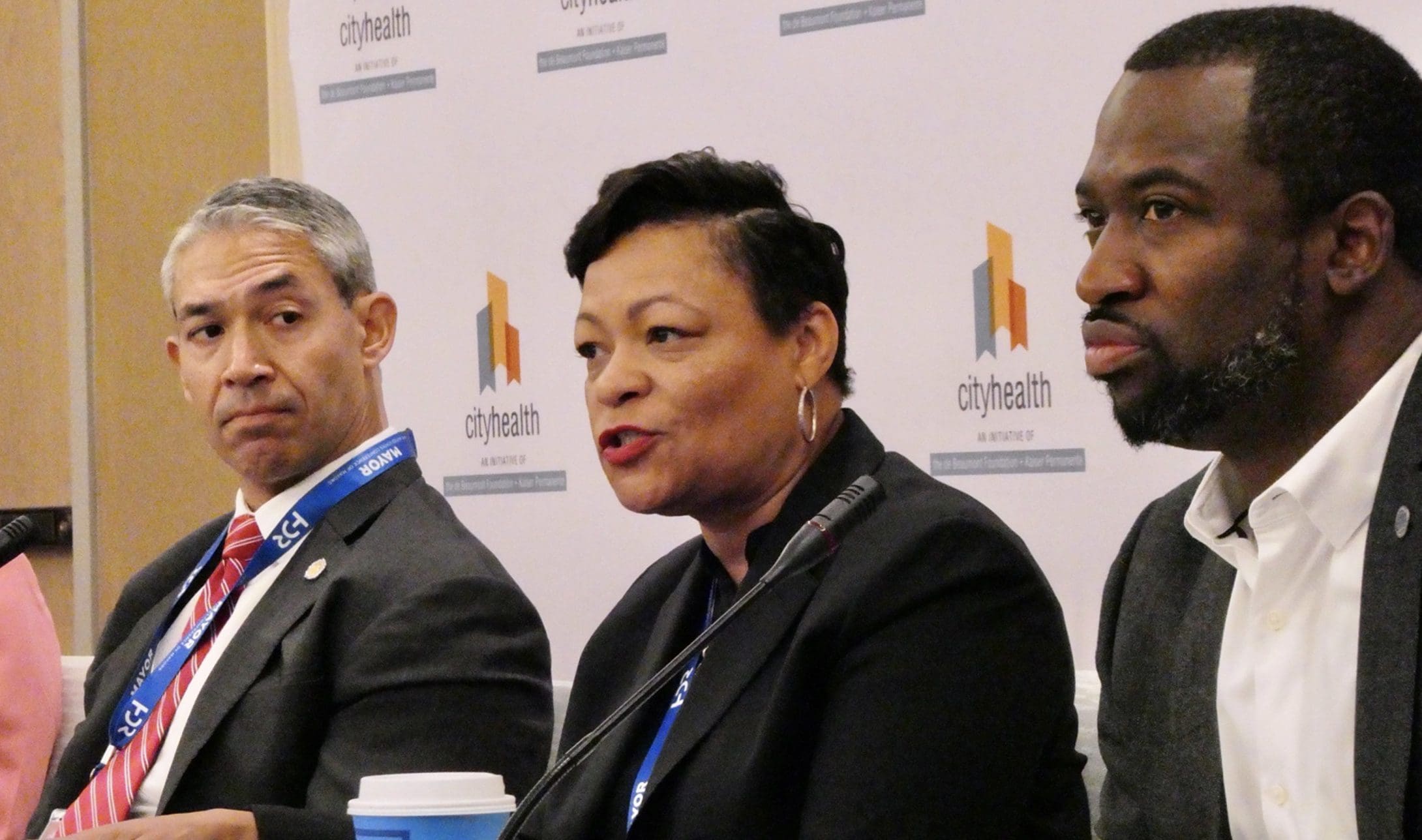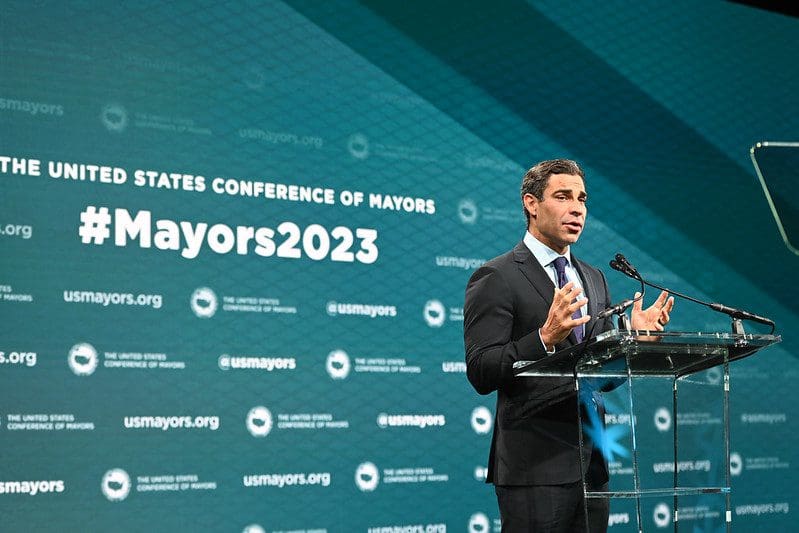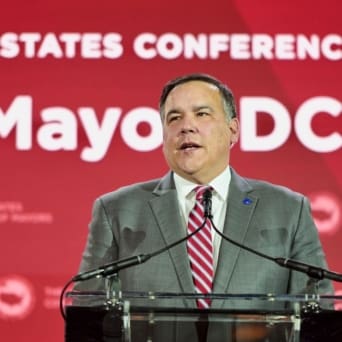By Lauren Talley

Mayors pose with CityHealth’s resolution celebrating local leadership in health. From left: Mayor Luke Bronin (Hartford, Connecticut), CityHealth Co-Executive Director Catherine Patterson, Mayor LaToya Cantrell (New Orleans, Louisiana), Mayor Ron Nirenberg (San Antonio, Texas), and Mayor Levar Stoney (Richmond, Virginia).
At their June annual meeting, the U.S. Conference of Mayors — an organization of America’s 1,400 largest cities — adopted a resolution recognizing the important role mayors play in championing health policies in cities across the country. Passed by a unanimous vote of the Conference’s membership, the resolution celebrates mayors for adopting “evidence-based and evidence-informed policies that lead to healthier residents and improved quality of life.”
Following CityHealth’s first policy assessment in 2017 — where fewer than half of the country’s largest cities qualified for an overall medal — cities have increasingly implemented policies in areas such as housing, greenspace, pre-K, tobacco use, city procurement practices, and more. By the final assessment of CityHealth’s inaugural policy package, more than 90% of America’s big cities had earned an overall medal, showing that city leaders understood the importance of policy to provide residents with healthy choices and the opportunity to live healthy, full lives.
Examples of mayors taking a health-centric approach to their leadership can be seen in cities throughout the country. This past year in Columbus, Ohio, Mayor Andrew Ginther joined other city and health leaders to pass a ban on the sale of flavored tobacco products — including menthol — within city limits. The policy not only protects residents from the harmful health effects of tobacco addiction and secondhand smoke – it helps promote health equity by targeting a product category that has been used by Big Tobacco to prey on youth and communities of color. Dr. Mysheika Roberts, Columbus’ health commissioner, said that one in three Black Columbus residents are smokers, and 85% of Black smokers use menthol cigarettes nationally. With more than 16 million Americans living with smoking-related diseases such as cancer, heart disease, and respiratory diseases, cities that pass comprehensive flavor tobacco restrictions are promoting the health and well-being of residents.
At the end of 2022, then-Louisville Mayor Greg Fischer passed an executive order establishing green cleaning procurement practices for the city, earning a gold CityHealth medal in eco-friendly purchasing. Daily exposure to chemicals found in everyday cleaning products can result in adverse health effects for city workers, particularly those who work in cleaning, food service, and maintenance roles — jobs that disproportionately impact workers of color. By requiring products such as foodware, cleaners, or furnishings to meet certain health standards, cities can harness their purchasing power to improve the health of their employees and residents. All new cleaning purchases and contracts made by the city of Louisville must now be certified green cleaning products, a move which creates a cleaner, safer environment for both workers and residents.

Mayor LaToya Cantrell speaks about New Orleans’ Legal Support for Renters policy.
And last year, New Orleans became the first city in Louisiana to provide a right to counsel for all tenants facing an eviction. While more than 5,000 households face eviction in the city each year, only around 6% have access to representation. Unstable housing is associated with a myriad of poor health outcomes including depression, stress-related illnesses, and increased emergency department use. Representation can make a dramatic difference in reducing evictions and keeping families housed. By providing legal representation to all renters, Mayor LaToya Cantrell and the New Orleans City Council have prioritized treating people humanely and with dignity and fostered a stable and healthier living environment for its residents.
These are just three of many examples of mayors working with city leaders, officials, and advocates to pass health policy solutions for the betterment of their communities. We applaud the U.S. Conference of Mayors for their support in passing a resolution to encourage mayors to continue investing in upstream policy solutions that create healthier cities for all.
Lauren Talley is a program assistant with CityHealth.




